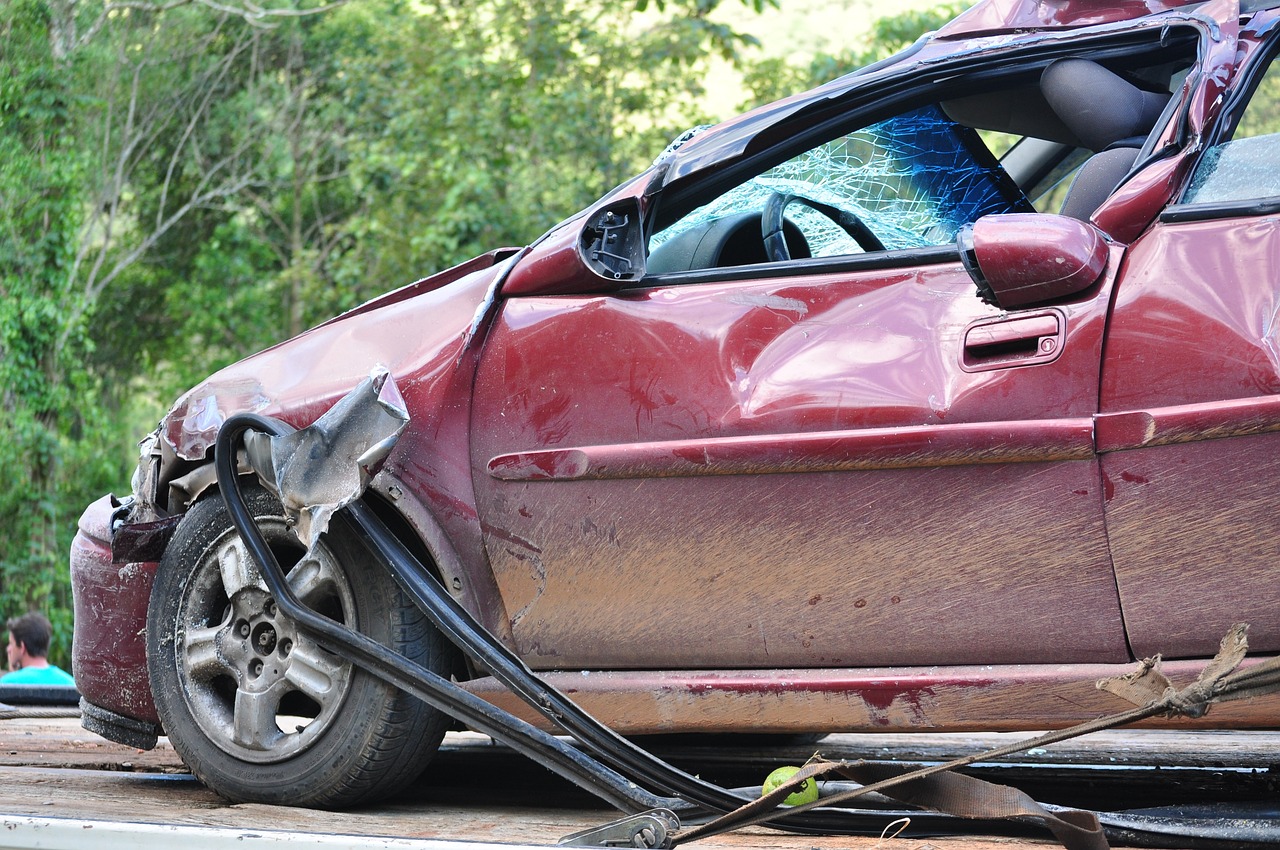If you’ve ever been involved in a car accident that wasn’t your fault, you know how frustrating and overwhelming it can be. From dealing with insurance companies to navigating the legal process, it can quickly become confusing. So, the question arises: Do you really need a lawyer in this situation? Well, the answer is not as straightforward as you might think. In this article, we will explore the reasons why hiring a lawyer after a car accident where you are not at fault can be beneficial, providing you with the knowledge and understanding you need to make an informed decision.
Understanding Fault in Car Accidents
Car accidents can be incredibly stressful and overwhelming, especially when it comes to determining who is at fault. Understanding fault is crucial in order to navigate the insurance claims process and seek compensation for your damages. In this article, we will explore the concept of fault in car accidents, how it is determined through evidence, and the importance of establishing fault.
Differentiating between fault and no-fault accidents
In some states, car accident cases follow a “fault” system, while others operate under a “no-fault” system. In fault states, the party at fault for the accident is responsible for covering the damages, while in no-fault states, each driver’s insurance company is responsible for covering their own damages, regardless of who caused the accident. It is important to know the laws in your state to understand how fault is assigned in car accidents.
Determining fault through evidence
Assigning fault in a car accident relies on gathering evidence and determining the actions or negligence of each party involved. This evidence can include police reports, witness statements, photographs, videos, and any other relevant documentation. It is crucial to gather as much evidence as possible to establish a clear picture of what happened and who was at fault.
Importance of establishing fault
Establishing fault is crucial for several reasons. Firstly, it determines which party is responsible for covering the damages and medical expenses resulting from the accident. Additionally, if you were not at fault and wish to pursue legal action, establishing fault is essential to prove negligence on the part of the other party. Finally, establishing fault can help protect your rights and ensure you receive fair compensation for your losses.
The Insurance Claims Process
After a car accident, navigating the insurance claims process can be complex and intimidating. Understanding the necessary steps and how to deal with insurance companies is vital to ensure you receive the compensation you deserve. Let’s explore the key aspects of the insurance claims process.
Reporting the accident to the insurance company
The first step in the insurance claims process is to report the accident to your insurance company. Provide them with all the necessary details, including the date, time, location of the accident, and any injuries or property damage that occurred. Be honest and thorough in your account of what happened.
Dealing with the other party’s insurance company
If the other driver was at fault, you may also need to communicate with their insurance company. It is important to remember that the other party’s insurance company is not on your side and their main goal is to minimize their costs. Be cautious when dealing with them and consider seeking legal advice to protect your rights.
Understanding insurance adjusters
Insurance adjusters are individuals who evaluate and settle insurance claims on behalf of the insurance company. They will likely contact you to gather information about the accident and the damages incurred. It is essential to be cautious when speaking with insurance adjusters and avoid accepting any settlement offers without consulting a lawyer.
Evaluating settlement offers
Insurance companies may offer you a settlement to resolve your claim. These offers are often low and may not fully cover your losses. It is important to carefully evaluate any settlement offers and consider consulting with a lawyer to ensure you are receiving fair compensation for your damages.

Benefits of Hiring a Lawyer
Navigating the aftermath of a car accident can be overwhelming, especially if you are dealing with injuries and significant damages. Hiring a lawyer who specializes in car accident cases can provide several benefits and help ensure your rights are protected. Let’s explore the benefits of hiring a lawyer in a car accident case.
Protection of your rights
Car accident lawyers are well-versed in personal injury laws and can advocate for your rights throughout the legal process. They will ensure that all necessary paperwork is filed correctly and that your claim is handled fairly.
Navigating complex legal procedures
The legal process can be complex, involving various deadlines, paperwork, and legal requirements. A lawyer can guide you through these procedures, ensuring that you meet all the necessary deadlines and present your case in the best possible light.
Maximizing compensation
Experienced car accident lawyers understand how to assess the full extent of your damages, including medical expenses, lost wages, property damage, and pain and suffering. They will fight to maximize your compensation and ensure you are not left with any out-of-pocket expenses.
Dealing with insurance companies
Dealing with insurance companies can be challenging, especially if they try to minimize your claim or deny it altogether. A car accident lawyer can communicate with insurance companies on your behalf and negotiate fair settlements that fully compensate you for your losses.
Proving fault and negligence
Establishing fault and proving negligence in a car accident case can be complex. A skilled lawyer will gather evidence, interview witnesses, and work with experts to build a strong case on your behalf. They will fight to prove that the other party was at fault and hold them accountable for their negligence.
When Should You Consider Hiring a Lawyer?
While not all car accidents require the assistance of a lawyer, there are certain situations where it becomes crucial to seek legal representation. Let’s explore when hiring a lawyer is advisable after a car accident.
Serious injuries or fatalities
If you or a loved one has suffered serious injuries or fatalities as a result of a car accident, it is essential to consult with a lawyer. These cases often involve significant medical expenses, long-term disabilities, and emotional trauma, requiring expert legal representation.
Disputed liability
When fault in a car accident is disputed, it can be challenging to negotiate a fair settlement with the other party’s insurance company. A lawyer can gather evidence, interview witnesses, and build a strong case to prove that the other party was at fault and maximize your chances of receiving fair compensation.
Potential long-term disabilities
Car accidents can result in long-term disabilities that require ongoing medical treatment, rehabilitation, and adaptive equipment. A lawyer can assess the full extent of your damages and ensure that you receive the compensation necessary to cover your long-term needs.
Dealing with uninsured or underinsured drivers
If you were involved in an accident with an uninsured or underinsured driver, seeking legal representation becomes crucial. A lawyer can explore other potential sources of compensation, such as your own uninsured/underinsured motorist coverage, to ensure you are not left with significant financial burdens.
Time limitations and legal deadlines
There are strict time limitations and legal deadlines for filing a car accident claim. It is important to hire a lawyer as soon as possible to ensure that your claim is filed within the required timeframe. Waiting too long can result in your claim being barred and you being unable to seek compensation.
How Can a Lawyer Assist in Your Case?
Car accident lawyers play a vital role in assisting their clients throughout the legal process. Let’s explore the ways in which a lawyer can assist you in your car accident case.
Gathering evidence and conducting investigations
A lawyer will thoroughly investigate the accident, gathering evidence such as police reports, witness statements, surveillance footage, and expert opinions. This evidence will help build a strong case to establish fault and prove negligence.
Handling negotiations and communication
Dealing with insurance companies can be overwhelming, especially when they try to minimize your claim or deny it altogether. A lawyer can handle all communication with insurance companies, ensuring your rights are protected and negotiating fair settlements on your behalf.
Building a strong legal strategy
Based on the evidence gathered, a car accident lawyer will build a strong legal strategy tailored to your specific case. They will anticipate potential challenges and work towards proving fault and securing fair compensation for your damages.
Representing you in court, if necessary
If your case goes to court, a car accident lawyer will represent you and present your case to the judge and jury. They will leverage their legal expertise, knowledge of personal injury laws, and courtroom experience to advocate for your rights and seek a favorable outcome.
Understanding Personal Injury Laws
Personal injury laws vary by state and understanding the specific laws applicable to your case is crucial. Let’s explore some key aspects of personal injury laws in car accident cases.
Statute of limitations for filing a lawsuit
Each state has a statute of limitations, which sets a time limit within which you must file a lawsuit after a car accident. Failing to adhere to this deadline can result in your claim being time-barred. It is important to consult with a lawyer to ensure you understand and meet the required deadlines.
Damages available in car accident cases
Car accident victims may be entitled to various types of damages, including medical expenses, lost wages, property damage, and pain and suffering. The specific damages available will depend on the circumstances of the accident and the laws of your state.
Comparative negligence laws
Some states follow comparative negligence laws, which means that the damages you receive may be reduced if you are found to be partially at fault for the accident. Understanding the comparative negligence laws in your state is essential to determine how fault may affect your compensation.

The Potential Costs of a Car Accident
Car accidents can result in various costs and expenses that can significantly impact your financial well-being. Let’s explore the potential costs you may incur after a car accident.
Medical expenses
Car accidents often result in injuries that require medical treatment. Medical expenses can include hospital bills, doctor’s visits, surgeries, medications, rehabilitation, and ongoing therapy. These costs can quickly add up and become a significant financial burden.
Lost wages and income
If you are unable to work due to your injuries, you may experience a loss of wages and income. This loss can be particularly challenging if you rely on your income to support yourself and your family. Seeking compensation for lost wages and income is essential to ensure you are not financially disadvantaged due to the accident.
Property damage
Car accidents can cause significant damage to your vehicle, requiring expensive repairs or even replacement. Repairing or replacing your vehicle can be a costly endeavor, and seeking compensation for property damage is crucial to cover these expenses.
Pain and suffering
The physical and emotional pain resulting from a car accident can impact your overall well-being and quality of life. Compensation for pain and suffering aims to provide financial relief for the emotional distress, trauma, and physical pain experienced as a result of the accident.
Choosing the Right Lawyer for Your Case
When hiring a lawyer for your car accident case, it is crucial to choose the right one who can effectively represent your interests. Consider the following factors when selecting a lawyer:
Specialization in personal injury law
Choose a lawyer who specializes in personal injury law and has extensive experience handling car accident cases. They will have the necessary knowledge, skills, and expertise to effectively represent you.
Experience and track record
Look for a lawyer with a proven track record of success in handling car accident cases. Consider their experience, past settlements or verdicts, and their overall reputation in the legal community.
Client testimonials and reviews
Read client testimonials and reviews to gain insight into the lawyer’s communication skills, professionalism, and dedication to their clients. Positive testimonials and reviews indicate a lawyer who is trusted and respected in their field.
Good communication and accessibility
Choose a lawyer who communicates effectively and is accessible to address your questions and concerns promptly. Open and transparent communication is essential to a successful attorney-client relationship.
Fee structure and payment options
Discuss the lawyer’s fee structure and payment options upfront. Many personal injury lawyers work on a contingency fee basis, meaning they only get paid if they win your case. This can provide financial relief and peace of mind as you pursue your claim.

Frequently Asked Questions
- Is it worth hiring a lawyer if I wasn’t at fault in a car accident?
- How long after an accident can I hire a lawyer?
- Will hiring a lawyer speed up the insurance claim process?
- What if I can’t afford a lawyer?
- How much does hiring a lawyer for a car accident cost?
FAQ Answers
- Yes, hiring a lawyer is beneficial as they navigate legal complexities and help maximize compensation.
- It’s best to hire a lawyer as soon as possible to ensure a thorough investigation and adherence to deadlines.
- While it can’t guarantee speed, a lawyer can handle the process more efficiently, preventing delays and denial tactics.
- Many car accident lawyers work on a contingency fee basis, meaning no upfront fees and payment only if they win your case.
- Lawyer fees vary, but most personal injury lawyers work on a contingency basis, typically around 30% of the settlement.